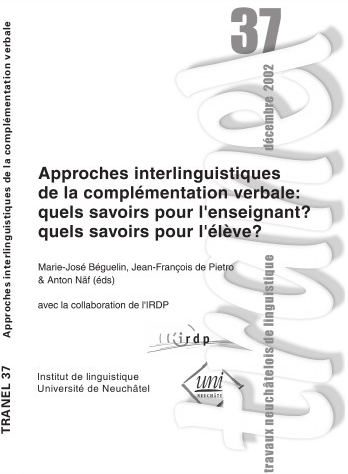Les francophones face aux cas de l’allemand: un cas désespéré?
DOI :
https://doi.org/10.26034/tranel.2002.2698Résumé
It is a well-known fact that learning to use the correct cases in German represents a major problem for speakers of French. The main difficulty resides in the fact that, when constructing an utterance in German as a foreign language, learners have to deal simultaneously, so to speak, with both syntactical and morphological constraints. The former concern the choice of the correct case or preposition, depending on the valency of the verb in question; the latter concern the concrete marking of case in the noun phrase which depends on various factors.
The present study is based on a corpus of oral language production from pupils at lycées (upper-secondary schools) in the Suisse Romande. It deals with the main types of errors occurring in the area of verb complementation, the most frequent of which are categorized and illustrated with typical examples. In attempting to account for these errors, we find that mother-tongue interference proves to be an important but by no means the only source. The paper concludes with some concrete suggestions for both learners and teachers of German as a foreign language.


